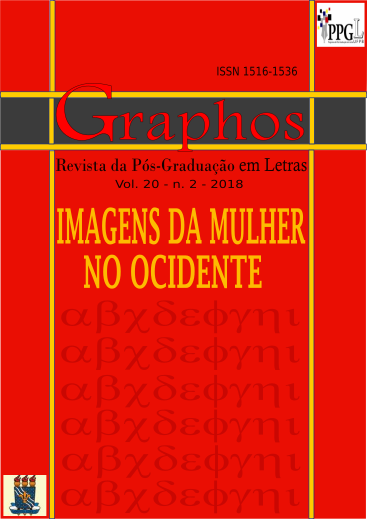The voice of a woman: feminism and dangerous liaisons
Keywords:
Dangerous liaisons, Choderlos de Laclos, Feminism, Epistolary novel, Point of viewAbstract
Dangerous liaisons: a feminist novel avant la lettre? It is this question that guides us in this article, in which we rely on the Gérard Genette’s theoretical reflections and authors specialized in the epistolary novel and in the Choderlos de Laclos’ work. In this study, we privilege the category from the point of view and the study of the epistolary novel and the character of the Marquise de Merteuil, a type of Medea of the Age of Enlightenment who, although widowed and without children to assassinate, does not hesitate to go to the final consequences to live / survive in a society dominated by men. In giving voice to this character, the French writer, who was also a staunch defender of women’s freedom, traces a panorama of the feminine situation in a certain class of the 18th-century in France. An even more oppressive prospect for being a young woman, rich and widowed, but stuck in her freedom. With the perversity nuanced by the display of its motives, Merteuil manages to escape from the role of villain and to consecrate herself as a complex character and of feminist characteristics, although avant la lettre. However, adapted numerous times to the cinema and TV, Laclos’ novel is transformed and what is shown to us is a villainous Merteuil, with the loss of all his questions about the situation of the woman. Thus, a rereading of this novel may evidence the anachronistic moral rules to which the woman is still subjected.
Downloads
References
BENVENISTE, Émile. Problèmes de linguistique générale I. Paris: Gallimard, 2000.
CALAS, Frédéric. Le roman épistolaire. Paris: Armand Colin, 2007.
COULET, Henri. Le roman jusqu’à la révolution: histoire du roman en France . 2. ed. Paris: Librairie Armand Colin, 1968. Tome I.
DELON, Michel. P.-A. Choderlos de Laclos: Les liaisons dangereuses. 2. ed. Paris: Presses Universitaires de France, 1990.
GENETTE, Gérard. Discours du récit: essai de méthode. Éditions du Seuil: Paris, 2007.
HORÁCIO. Arte poética. In: ARISTÓTELES, HORÁCIO, LONGINO. A poética clássica. Tradução Jaime Bruna. São Paulo: Editora Cultrix, 2005. p. 55-68.
HUMBERT, Brigitte E. De la lettre à l’écran: Les liaisons dangereuses. Amsterdam, Atlanta: Éditions Rodopi, 2000.
LACLOS, Choderlos de. OEuvres complètes. Paris: Gallimard, 2007.
MALRAUX, André. Préface. In: LACLOS, Choderlos de. Les liaisons dangereuses. Paris: Gallimard, 2007. p. 7-22.
MAY, Georges. Le dilemme du roman au XVIIIe siècle. Paris: Presses Universitaires de France, 1963.
POMEAU, René. Laclos ou le paradoxe. Paris: Hachette, 1993.
ROUANET, Sérgio Paulo. O desejo libertino entre o iluminismo e o contra-iluminismo. In: NOVAES, Adauto (Org.). O desejo. São Paulo: Companhia das Letras, 1990. p. 167-196.
ROUSSET, Jean. Forme et signification: essais sur les structures littéraires de Corneille à Claudel. Paris: Librairie José Corti, 1962.
SEYLAZ, Jean-Luc. Les liaisons dangereuses et la création romanesque chez Laclos. Paris: Droz, 1998.
TERZAKIS, P. G. As ligações perigosas na literatura e no cinema: ponto de vista e construção de sentidos. 2013. 171 f. Tese (Doutorado em Letras) – Universidade Federal da Paraíba, João Pessoa, 2013.
TOMACHEVSKI, B. Temática. In: EIKHENBAUM, Boris et al. Teoria da literatura: formalistas russos. Tradução Ana Mariza Ribeiro Filipouski et al. Porto Alegre: Editora Globo, 1973, p. 169-204.
VAILLAND, Roger. Laclos. Paris: Éditions du Seuil, 1953. (Collection Écrivains de toujours).
VERSINI, Laurent. Le roman le plus intelligent: Les liaisons dangereuses de Laclos. Paris: Honoré Champion Éditeur, 1998.
ZOLIN, Lúcia Osana. Literatura de autoria feminina. In: BONNICI, Thomas; ZOLIN, Lúcia Osana (org.). Teoria literária: abordagens históricas e tendências contemporâneas. 3. ed. Maringá: Eduem, 2009. p. 327-336.







